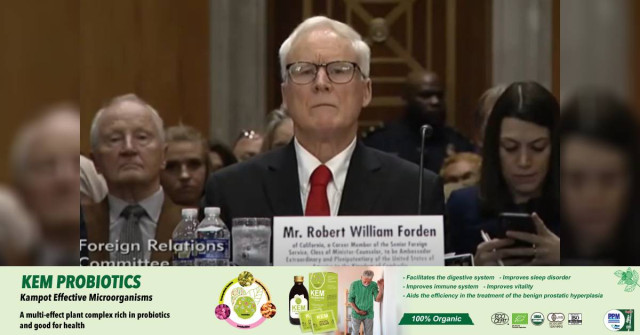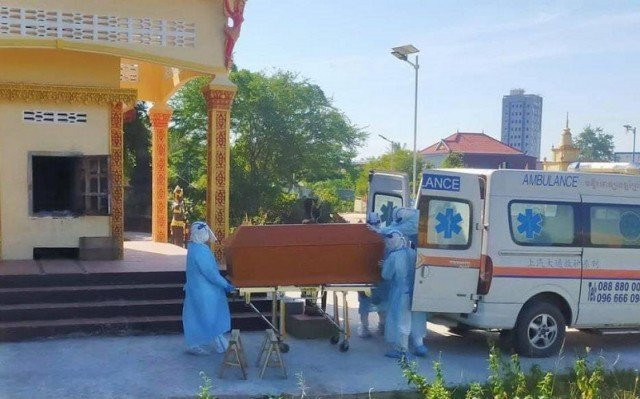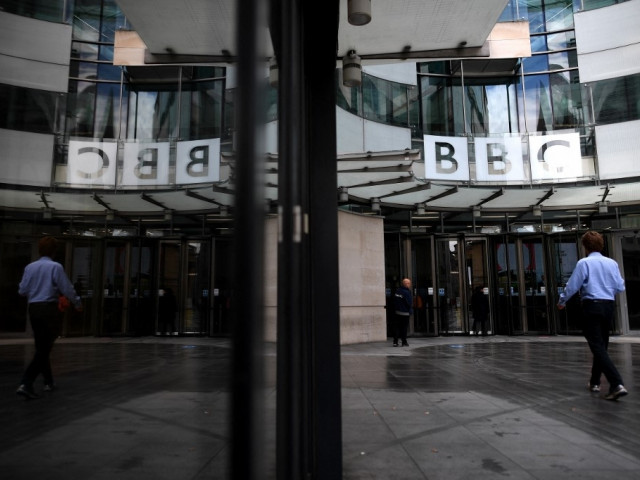US Ambassador-Designate Pledges to Focus on Human Rights and Ream Naval Base

- By Meng Seavmey
- March 11, 2024 7:10 PM
PHNOM PENH – The next U.S. ambassador-designate to Cambodia said he would work to advance the respect for human rights while resolving issues related to the future use of the Ream naval base in Preah Sihanouk province.
Robert Forden made this pledge at a nomination hearing on Mar. 7 before the U.S. Senate Foreign Relations Committee, in Washington D.C. The hearing was part of the selection process, which will need to be approved by the Senate at a later date.
According to Forden, the U.S. and Cambodia have had a “productive bilateral cooperation” on many important issues, including law enforcement, child protection, education, cultural preservation, public health, and Prisoner of War (POW) or Missing in Action (MIA) accounting.
Both countries have also worked on common challenges through the scope of the ASEAN or the Mekong-U.S. Partnership. They also condemned the Russian invasion of Ukraine and implemented UN Security Council resolutions related to North Korea.
However, the ambassador-designate expressed his concerns about respect for human rights in Cambodia and the future use of the Ream naval base in Preah Sihanouk province.
He has made these two issues a priority for his upcoming mandate as the U.S. ambassador to Cambodia. “Cambodia has regressed from a flawed, but functioning, democracy to a state of governance that has little tolerance for dissent,” he said.
He recalled that his mission will be to work with the new government of Cambodia to “advance a shared vision of a free, open, prosperous, and secure Indo-Pacific region.”
Forden said the U.S. still has serious concerns about “the intent, nature, and scope of construction” at the Ream naval base, and questions the role of the Chinese military in the current and future use of the base.
“The United States will continue to support efforts to maintain and preserve Cambodia’s sovereignty,” he said.
Sam Seun, a policy analyst at the Royal Academy of Cambodia, said the U.S. foreign policies play an important role in promoting democracy in other countries, including Cambodia. However, to what extent those countries implement democratic policies depends on themselves, not only on the U.S. influence.
Regarding the Ream naval base, the analyst said the U.S. is “overthinking it a bit” as Cambodia’s claimed many times that no foreign military will use the base in the long term as it is forbidden by the country’s Constitution.
“The U.S. is not concerned about the base but about China's influence on the base. They are concerned that China might be allowed to use the base, although Cambodia stands firmly that it will not be the case,” he added.
To work closer with the Cambodian government, the analyst suggested the U.S. – besides talking about their concerns and setting out policies – should also learn to listen to the small countries’ needs and work together with them, as those countries have their own needs and concerns.
“In this case, they should understand Cambodia's geography and needs to work better with the government,” he said.
Likewise, Thong Mengdavid, a research supervisor at the Asian Vision Institute, said the new U.S. ambassador to Cambodia “should have a better understanding of Cambodia’s neutrality policy and laws, especially as the young democratic state has gone through numerous devastating periods due to geopolitical rivalry in the past.”
For a closer relationship, the U.S. could provide greater support to Cambodia to develop its labor force as defined in the new investments law, and promote cooperation on education, economic development, technology, innovation and military training, the analyst said.
“There remain big gaps of opportunities and cooperation for both countries to advance national interests based on mutual respect, reciprocal benefits and multilateralism,” Mengdavid added.
Having worked in the Foreign Service for 35 years, Forden said Cambodia was one of the countries that he had wanted to work with for a long time.
“Since I was a young college student, I watched my mother serve as a volunteer English tutor for Cambodian refugees who were sponsored by our church,” Forden said, adding that he then learned Cambodia’s culture and history.
Forden has already represented the U.S. in some Asian countries – including China, Taiwan, Vietnam – and Israel.
Since the establishment of diplomatic ties in 1950, there have been 16 U.S. ambassadors to Cambodia. The current U.S. Ambassador to Cambodia is W. Patrick Murphy, who was appointed for the mission in August 2019.















